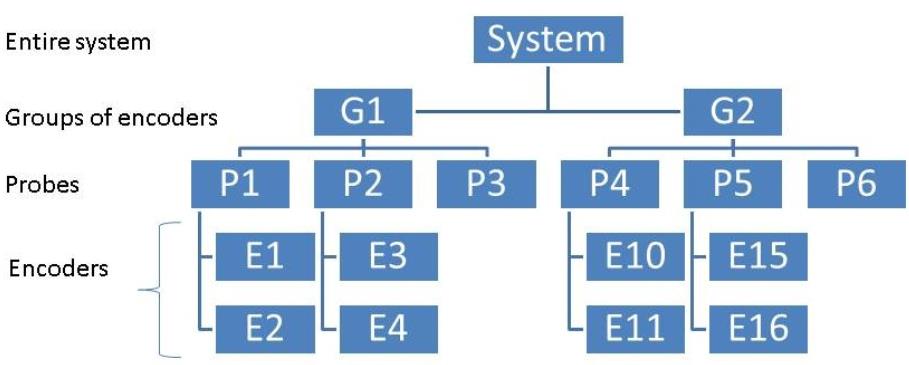System architecture¶
The central server is the heart of MIS. It has an overarching responsibility for all aspects of the system. Depending on size, MIS will utilize one or more probe servers. The responsibility of the probe is to ingest and store programs. The probe utilizes capture cards to enable MIS to interface with various program sources.
The MIS probe ecosystem is organized in a hierarchal manner. There are several layers that make up the system: bouquets groups, probes, and encoders.
Bouquet(s): are logical associations of streams independent of location.
Group(s): this level associates multiple probes under one unified heading. Groups can be created by input source, geography, network capture location, etc.
Probe(s): each server, as a whole unit, contains anywhere from 1 to 16 video, audio and metadata capturing inputs/channels. It stores the recorded content locally and streams out the recorded content to end users.
Encoder(s): this is the proxy copy created for each item of video content recorded by the system. There is a direct one-to-one relationship between each probe video input and the proxy stored on the probe.
You must assign each probe server in the system to a probe group. Use groups to help you organize your streams and manage alerts, since a probe group often shares a geographical territory or a specific service area.

Figure: Probe architecture¶